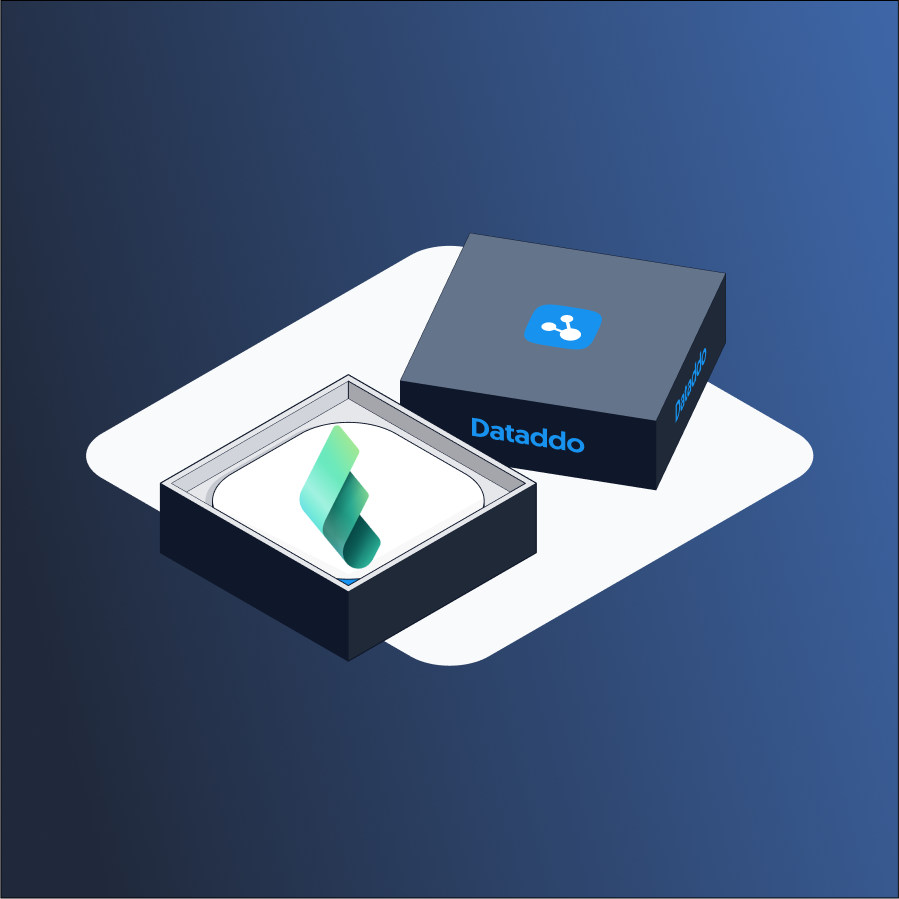Deliver data to the heart of Microsoft’s new analytics platform in minutes
Microsoft Fabric is quickly becoming the centerpiece of the modern Microsoft data stack, combining Power BI, Azure Synapse, Data Factory, and more into a single, unified platform. Dataddo now supports Microsoft Fabric as a destination. This makes it easier than ever to sync data from 350+ sources into your Fabric Lakehouse.
Why Microsoft Fabric Matters
Fabric offers a single foundation for data engineering, real-time analytics, business intelligence, and AI using a flexible, pay-as-you-go model.
If you're outgrowing your current Power BI setup or looking to simplify your Azure stack, Fabric delivers:
-
Seamless integration with Microsoft 365 and Copilot
-
Governance and security built into OneLake
-
Elastic compute across pipelines, lakehouses, and analytics
-
Simplified licensing via Fabric F-SKUs (replacing Power BI P-SKUs)
Simplicity of Fabric is especially welcome by the Azure admins we talk to.
Fabric as a Destination in Dataddo
You can now easily deliver data directly into Microsoft Fabric Lakehouses:
-
Sync complete or incremental datasets from 350+ data sources
-
Land data in Fabric Delta tables ready for BI, AI, or advanced analytics
-
Build robust pipelines in minutes—with zero scripting
But Fabric has integrations built in! Why use Dataddo?
Dataddo extends Fabric's connector catalog to support your full tech stack
Yes, Microsoft Fabric natively supports ~140 connectors—especially Microsoft ecosystem services and cloud native databases (Snowflake, Google BigQuery). But, many organizations run on technologies and rely on platforms that are not supported by Fabric's connectors:
- Social Media platforms like Meta, YouTube, LinkedIn, Reddit
- ERPs like NetSuite or Odoo
- Databases like Clickhouse, DuckDB, Exasol or Informix
- Modern SaaS platforms like HubSpot, Intercom, Klaviyo
- HR, marketing, and accounting tools (often country specific)
Dataddo connects to them all...
...and if a connector doesn’t exist, we’ll build it for you.
Importantly, Dataddo's focus on connectors means we also:
- support schema evolution handling
- allow incremental data loading (vs costly full data ingestion only)
- aren't hindered by Spark-related constraints
- provide features like multi-account extraction and historical data loads
- offer a friendly, no-code UI
- provide stellar support
Fabric gives you the future of Microsoft analytics. Dataddo makes sure all your data is connected to it.
When Should You Consider Switching to Fabric?
Fabric is an ideal fit if you’re:
-
Outgrowing Power BI’s built-in modeling tools
-
Managing disjointed workflows across Azure services
-
Planning to support AI assistants or copilots with governed data
-
Looking for a unified data platform with simplified billing and scaling
Already Using Power BI or Azure? You’re Halfway There
If you’re already using Dataddo to send data to Power BI, Azure SQL, or Synapse, migrating or extending to Fabric is straightforward:
-
You can clone your existing pipelines and point them to a Fabric Lakehouse
-
You can test Fabric in parallel with your current workflows
Get Started in Minutes
To use Dataddo with Microsoft Fabric, you’ll need:
-
A Lakehouse set up in that workspace
Once your environment is ready:
-
Log in to your Dataddo account
-
Add Microsoft Fabric as a destination
-
Connect your data sources with Fabric in a Flow
-
Go live
Whether you’re upgrading from Power BI, consolidating Azure workloads, or exploring AI use cases, Dataddo connects all your data into Microsoft Fabric quickly and professionally.
As always, we're ready to help you with your project and setup, simply reach out to your account manager via our app or send us an email (we reply quickly).



Comments